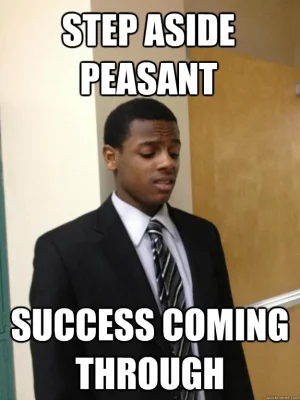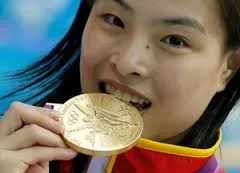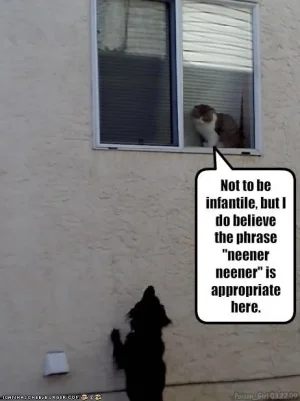You are using an out of date browser. It may not display this or other websites correctly.
You should upgrade or use an alternative browser.
You should upgrade or use an alternative browser.
Last person to post wins
- Thread starter TinyBubbles
- Start date
- Status
- Not open for further replies.
More options
Who Replied?- MBTI
- .
- Enneagram
- 86_47
Is...is this a thing? I thought it was suppose to be a satirical joke. Are people actually trying to reduce the influence of money in politics by raising money to influence politics?
Seriously?
http://www.theverge.com/2014/5/13/5...c-to-end-super-pacs-reaches-crowdfunding-goalMayOne, the crowdfunded super PAC that is supposed to fight big money in politics by raising big money in politics, has reached its initial goal of $1 million 18 days before the deadline.
"Stay tuned. And thank you to everyone who expressed in this uniquely authentic way that they believe it’s possible to reclaim a democracy," wrote founder Lawrence Lessig, a Harvard professor and longtime critic of the way political campaigns are funded in the US.
Lessig started the super PAC, or political action committee, in order to elect candidates who support campaign finance reform. His plan is to have big donors match the $1 million raised today, then raise $5 million more from the crowd in 2016 and have big donors match that, for a total of $12 million. The money will go into five House races, but Lessig is waiting to say which ones.
Super PACs are allowed to raise unlimited amounts of money to spend on advertising and other forms of support, but may not contribute directly to parties or candidates. They have become the preferred venue for monied interests to support their pet issues without bumping into contribution limits. Super PACs often form around single races, and most raise funds from a relatively small number of big donors.
This "hack the system" approach has attracted support in the tech community, but what Lessig is doing isn't new. Campaigns in the US are crowdfunded by default — it's difficult to find a politician who doesn't include a "donate $20 now" button on his or her website. Lessig is also pulling in big donors to match the small contributions, which would seem to reinforce the idea that the powerful will always have an outsize impact on politics even when members of the public band together.
MayOne has also been vague about its plans: "The money raised is turned over to professional campaigners, who will craft interventions in targeted districts to make fundamental reform the issue in that campaign — and to make the reform candidate the winner."
At the same time, there isn't much momentum for campaign finance reform right now. Lessig's campaign, modest as it is, may give life to the populist side of the debate.
[video=youtube;P1eCF865vn0]https://www.youtube.com/watch?v=P1eCF865vn0#t=186[/video]
- MBTI
- INTJ
- MBTI
- INTJ - A
- Enneagram
- 10000
- MBTI
- INTJ
- MBTI
- INTJ
cvp12gh5
What a lovely way to burn...
- MBTI
- Intui
- Enneagram
- Thinking
- Status
- Not open for further replies.
















